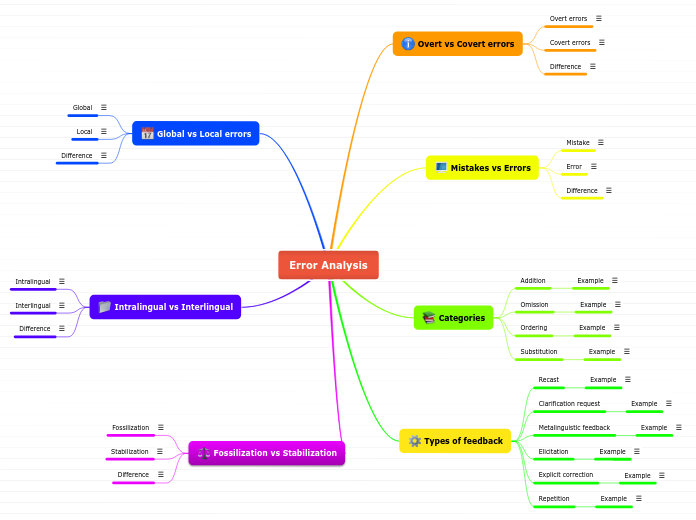Error Analysis
Overt vs Covert errors
Overt errors
Covert errors
Difference
Mistakes vs Errors
Mistake
Error
Difference
Categories
Addition
Example
Omission
Example
Ordering
Example
Substitution
Example
Types of feedback
Recast
Example
Clarification request
Example
Metalinguistic feedback
Example
Elicitation
Example
Explicit correction
Example
Repetition
Example
Global vs Local errors
Global
Local
Difference
Intralingual vs Interlingual
Intralingual
Interlingual
Difference
Fossilization vs Stabilization
Fossilization
Stabilization
Difference
